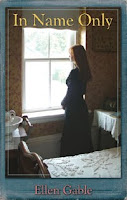Ms. Manners Goes to Conference! Conference Etiquette for a Better Experience
 Headed for Catholic Writers Conference? Are you excited? You should be! What an opportunity to rub shoulders with industry professionals, to put faces and personalities to folks you’ve met online, to renew friendships, and to network. This is a once in a lifetime experience; make the most of it. There will never be another gathering of exactly the same people at this point in their faith and writing journeys. Truly you are in Arlington, Texas, because God has called you to be there!
Headed for Catholic Writers Conference? Are you excited? You should be! What an opportunity to rub shoulders with industry professionals, to put faces and personalities to folks you’ve met online, to renew friendships, and to network. This is a once in a lifetime experience; make the most of it. There will never be another gathering of exactly the same people at this point in their faith and writing journeys. Truly you are in Arlington, Texas, because God has called you to be there!
Each of you has a specific reason for attending, a goal you hope to accomplish. If this is your first conference experience, the coming days are likely to be a roller coaster of euphoria juxtaposed with self doubt. Be assured that you are not the only one grappling with these feelings. I hope this knowledge translates into a greater sense of ease in a new and sometimes intimidating environment. Here are some words of advice (of wisdom, too, hopefully!) for both newbies and veterans, for authors, for agents, and for editors, geared toward making this conference the best it can be for everyone:
1) Everyone’s goals are the same, ultimately. Editors want to find the next diamond of a manuscript to publish. Agents want to discover the next author whose career they can guide to new heights. Authors want to find a publisher and/or agent to promote their awesome work. And in this particular setting, all of these people want to serve God with their talents and gifts in the way that pleases Him the most.
When viewed through that prism, competition loses the edge of greed and rejection loses its sting. We’re all on the same side, and God’s looking out for the good of each person’s life and career. This doesn’t mean you should fail to promote your product, just that there is no need for fear. Which brings us to the next point.
2) Be confident. You have something no one else does: your voice, and your work. These are gifts that God has given you, gifts that you have honed with hard work and prayer. No one can duplicate your contribution. Take heart in that fact, and know that your work will find its home. Maybe through this conference; maybe not – which leads to…
3) Don’t take rejection personally. Sometimes it just isn’t a good fit for the publisher or agent. Imagine a library with thousands of books. You have three days to find the best two. You will have to create a system to sort and discard the ones that aren’t suitable for your purpose. Do you see that many wonderful, deserving books will be overlooked? This does not reflect on the worthiness of each one, the same way it does not reflect on your particular project. And in today’s climate, many options are available. So…
4) Be open. There are many possibilities that we may not recognize in our limited, human view. Be open to new ideas, new directions, new options. You may discover a brand new path, or even a calling! You may discover it through…
5) Networking. This is the whole purpose of a conference. Meet people! Ask them what they write, who they want to represent, what they want to publish. Have a brief answer for these questions, too, so you can give a nutshell sense of your project when it comes up. (I write ___, and my current project is about ___.)
This is a remarkably small community, and the contacts you make in the next few days will serve you for your entire career. Do not discount the importance of these interactions. They are crucial for your success. But remember…
6) Be nice. This should go without saying, especially in this setting, but we are human and sometimes we need to be reminded. Keep your comments positive; you never know who might overhear or repeat something you said in a frustrated or disappointed moment. Again, this is a remarkably small community even though it may not seem that way.
Also, restrict your interactions to appropriate venues. Don’t try to pitch to an agent or publisher in the restroom, or shove your manuscript under the door of the stall. I have witnessed the first and have heard of the second, so these are not as far-fetched as they seem. Be considerate of folks. If the target of your interest has a headache or gets a pained look on their face when you approach, be brief. Introduce yourself and say you’d like to send them a query if that is acceptable; believe me, they will remember and appreciate your kindness. And that goes a long way. Which leads to the last point…
7) Be yourself. This may call for leaving your comfort zone, though. If you tend to be shy (many writers are!) push yourself to be more sociable. It’s not hard; smile and ask people around you about themselves. You’ll be glad you did. If you are an extrovert, recognize your tendency to overshadow the more timid among us and let them shine, too.
I hope each one of you has a wonderful experience at the Catholic Writers Conference! And… Oops! I forgot the most important words of advice! HAVE FUN!






